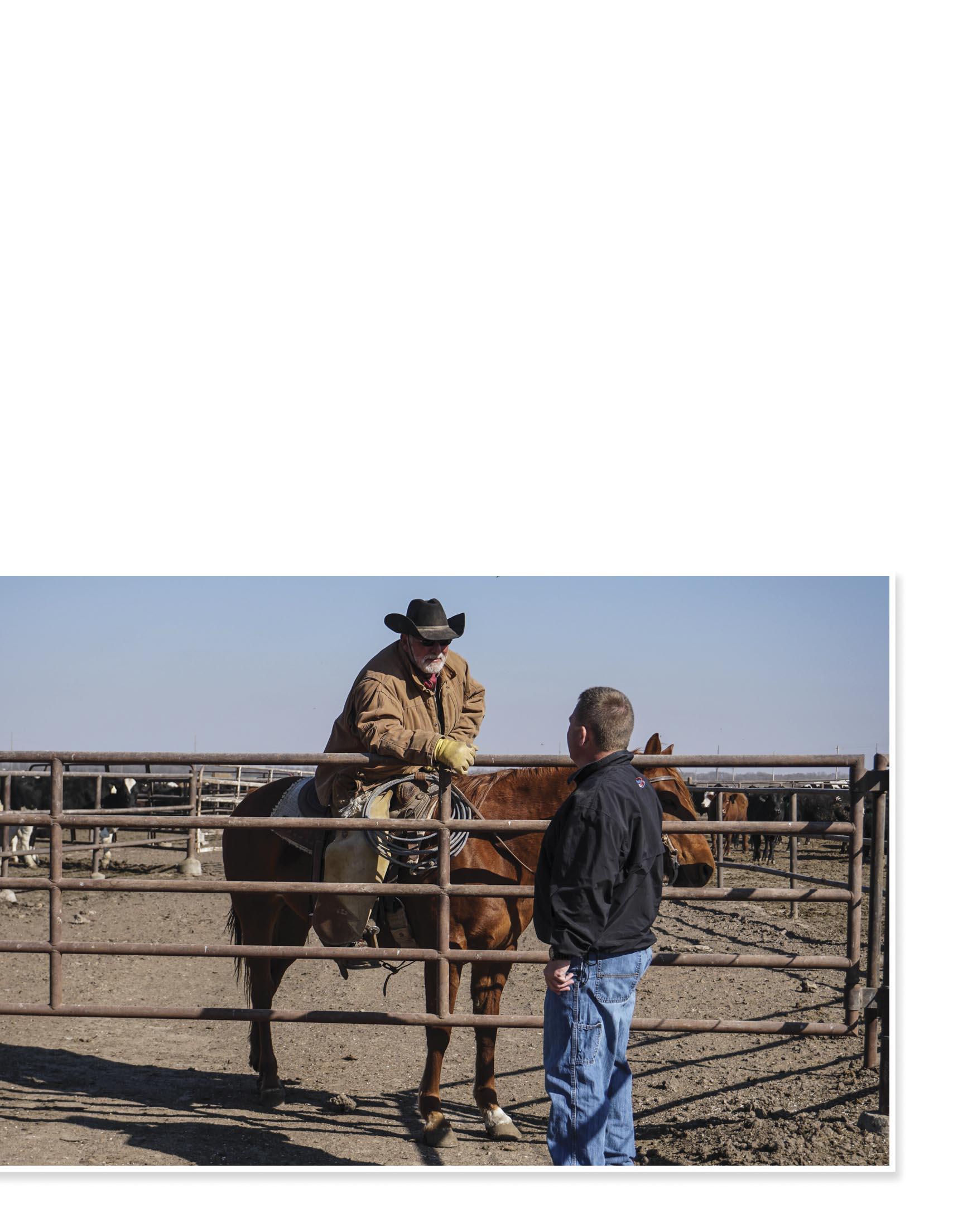
4 minute read
DECENTRALIZING DECISION MAKING – RELEASING POWER AND CONTROL
By Nels Lindberg, DVM, Production Animal Consultation
Have you ever worked for someone who rarely allowed you to make a decision or who was a control freak? Maybe those descriptions are a bit extreme, and you have worked for someone who holds tight to decision making and control in some areas but not others. Many of us as leaders struggle with the varying degrees of decision making and control that we should relinquish or delegate as we make our leadership journey in a feedyard or agriculture organization.
The challenge we face is the sheer value of animals within our care. When we are entrusted with the successful outcome of millions of dollars’ worth of animals or perishable products, we can get caught up in making sure all aspects of the operation are executed to our standards with extreme supervision and guidance.
The age of the organization plays into the level of supervision or guidance required. The younger the business, the greater the guidance and supervision called for, while a more established business can allow for less supervision and guidance. Often, leaders feel the need to remain too involved in different aspects of the feedyard rather than allowing others to lead and reaping the rewards of the great hiring and mentoring already done.
The key question for each of us as leaders is, “What would happen to the feedyard (or the team I lead) if I were to die today?” Are there people around you that could rise to the challenge and lead the yard in a winning direction? Or do you have some work to do in making sure that you have the right people in the right place to ensure the operation will go on just fine without your leadership? Do you need to decentralize some decision making to help ensure success beyond you?
I recently worked alongside and observed a team of supervisors that had the oppor tunity to step up following the loss of a leader who had centralized power. What I learned is that most good human beings will rise to the challenge if needed or if given the opportunity. It just takes some coaching, guidance, and clarity by way of thorough, routine communication.
A key aspect to making sure your feedyard goes on beyond you is decentralizing decision making and control. According to Merriam-Webster, the definition of decentralization is “the dispersion or distribution of functions and powers”. Decentralization takes some of the weight off your shoulders by letting those around you carry some of the load.
Decentralization of decision making can be very “releasing” and empowering. It can encourage others to grow while you also grow and focus on other areas of opportunity. It creates “white space” for your brain to challenge where you are and where you are headed in the future.
Decentralization of decision making requires four things:
1. A solid foundation of trust – There must be a solid foundation of trust, care, and desire for the organization to be more successful in the future than under your leadership. This requires the points we reviewed in last issue’s article on working to replace yourself. From all leaders of the organization, it requires vulnerable humility and honesty, doing what we said we would do, and routine meetings and conversations (scheduled and unscheduled). As the leader of the feedyard or crew, you should routinely ask others, “What do you think?” This sets the tone for the group and encourages everyone in the organization or team to ask the same question.
2. A strong set of values – In order for any leader to trust their people, we must have a solid set of behavioral values for every member to abide and live by. We do this by identifying what those behaviors and values are, developing them, and then indoctrinating them so they permeate throughout the team or feedyard with complete buy-in. We must have a minimum set of common behaviors leadership is aligned on. For organizations to last beyond current successful leaders, we as leaders must make sure those behaviors that got us to where we are today are instilled in all leaders. This will increase the likelihood that decentralization of decision making goes (mostly) according to plan.
3. Transparent alignment on direction – If we decentralize decision making and power without sharing relevant information and expectations, then those we give the power to make more decisions will more than likely fail in our opinion. We must provide them with the practical knowledge, expectations, priorities, vision, boundaries, and limits for the decision so that they are equipped to make the best-informed decision possible. We also need to make sure they know the direction we are headed for that day, week, month, or year. The further out we can line out “direction”, with the understanding that “direction” is fluid and will change, the better-informed decisions our people can make.
4. Repeated communication on direction – This is a repeat of point #3, because it is that important to the success of decentralization of decision making and power! If point #3 is executed well, organizations will find themselves actively growing while also engaging in “white space” that allows for creativity in working on the business (rather than just working in the business). This generally opens more doors for greater success. In this process of executing point #3, continue asking “What do you think?” and truly listening to others’ ideas and input.
Earlier, I posed the key question, “What would happen to the feedyard (or the team I lead) if I were to die today?” I began to ask myself this question about 15 years ago, and I did not have a good answer at the time. I do not know how you would answer the question today, but I hope this article will stimulate you to think more about how you can contribute to your organization or team’s success after you are gone. That may seem a bit extreme, but it is reality. The team you lead needs to be successful beyond you, and you can help make that happen. That is the most honorable work you can do for them! They deserve that, so let’s get it done!
Dr. Nels Lindberg is a people coach, team coach, business coach, and keynote speaker, available virtually or in person. If you have any interest in these opportunities, please reach out to his of fi ce at 620-792-1265 and visit with his right-hand lady, Jill.












